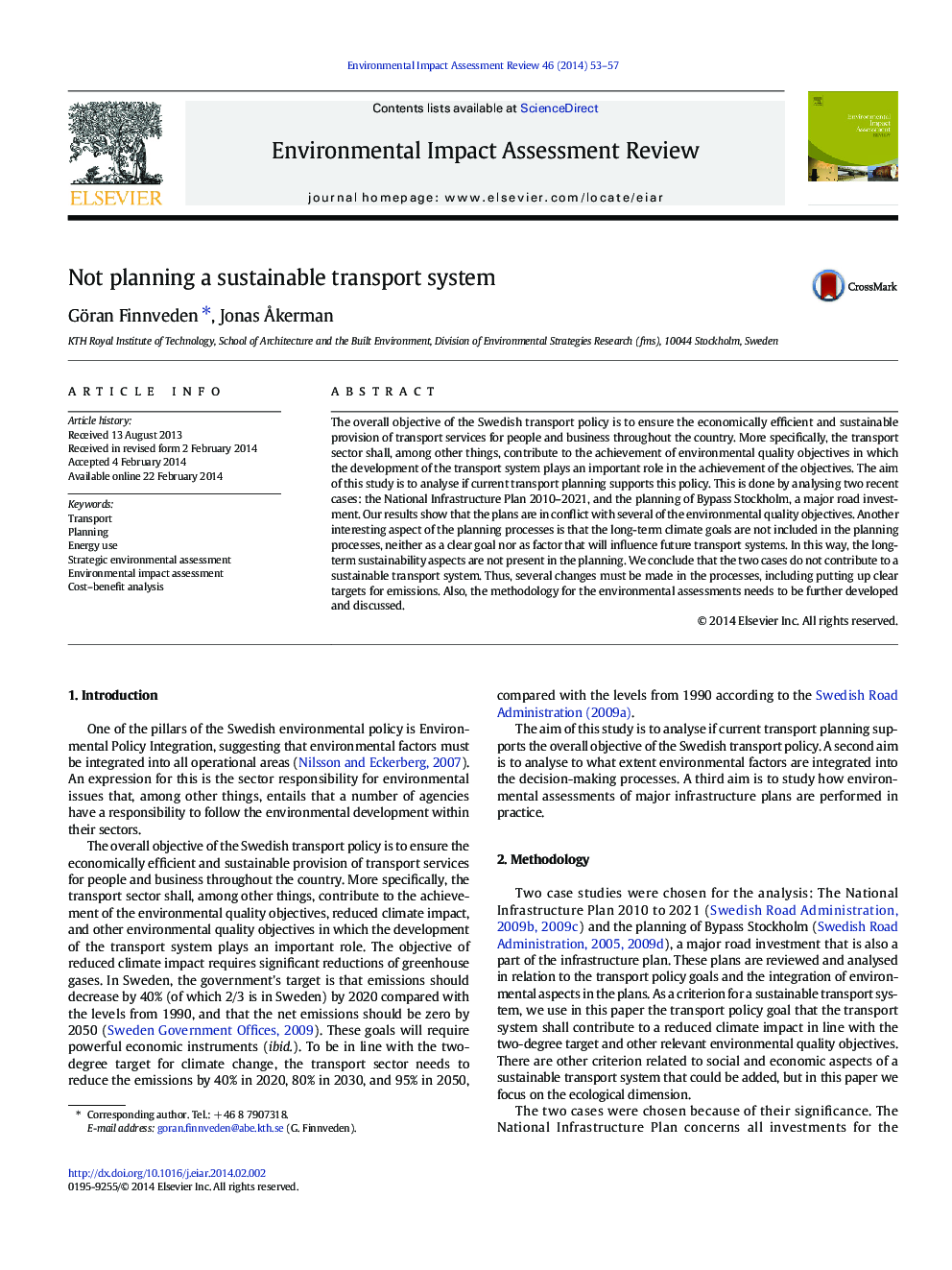| Article ID | Journal | Published Year | Pages | File Type |
|---|---|---|---|---|
| 1052743 | Environmental Impact Assessment Review | 2014 | 5 Pages |
•Two cases are studied to analyse if current planning supports a sustainable transport system.•Results show that the plans are in conflict with several of the environmental quality objectives.•Long-term climate goals are not included in the planning processes.•Current practices do not contribute to a sustainable planning processes.•Methodology and process for environmental assessments must be further developed and discussed.
The overall objective of the Swedish transport policy is to ensure the economically efficient and sustainable provision of transport services for people and business throughout the country. More specifically, the transport sector shall, among other things, contribute to the achievement of environmental quality objectives in which the development of the transport system plays an important role in the achievement of the objectives. The aim of this study is to analyse if current transport planning supports this policy. This is done by analysing two recent cases: the National Infrastructure Plan 2010–2021, and the planning of Bypass Stockholm, a major road investment. Our results show that the plans are in conflict with several of the environmental quality objectives. Another interesting aspect of the planning processes is that the long-term climate goals are not included in the planning processes, neither as a clear goal nor as factor that will influence future transport systems. In this way, the long-term sustainability aspects are not present in the planning. We conclude that the two cases do not contribute to a sustainable transport system. Thus, several changes must be made in the processes, including putting up clear targets for emissions. Also, the methodology for the environmental assessments needs to be further developed and discussed.
